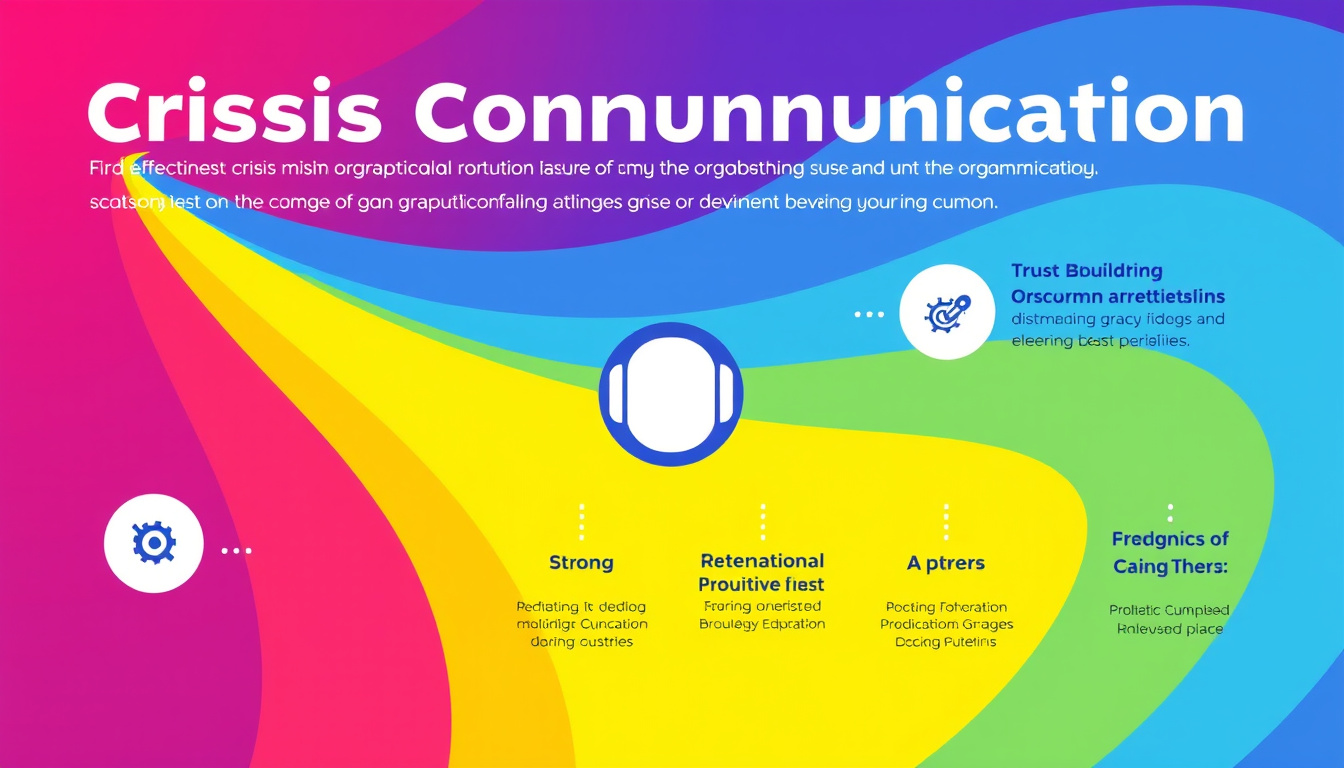In today’s fast-paced world, crises can emerge at any moment, posing significant threats to businesses and organizations. Whether due to natural disasters, technological failures, or public relations disasters, the ability to communicate effectively during a crisis is crucial for preserving trust, organizational reputation, and operational continuity. A well-crafted crisis communication plan (CCP) serves as the backbone of an organization’s response strategy, allowing for a structured and efficient approach in the face of adversity. This article discusses essential strategies for creating and implementing effective crisis communication plans.
Understanding the Importance of Crisis Communication Plans
A crisis communication plan is not merely a reactive tool; it represents proactive preparation. Recognizing that every business is susceptible to crises, companies must develop tailored strategies to address various scenarios. An effective CCP enables swift and transparent communication with all stakeholders—including employees, customers, media, and regulators—thus minimizing misinformation while maintaining public confidence.

Key Questions to Define Your Crisis Plan
Before devising your crisis communication plan, consider the following foundational questions:
- What types of crises could your organization face? Identify potential risks—ranging from data breaches to natural disasters—and categorize them accordingly.
- Who are your key audiences during a crisis? Pinpoint your stakeholders, which might include employees, customers, shareholders, and the media, and their information needs during different crisis scenarios.
- What are your specific messages for each audience? Tailor communications based on the audience’s role, how they will be impacted, and what information they will require.
- What internal protocols must your employees understand? Clearly delineate expectations and responsibilities for both the crisis communication team and all employees.
These initial considerations pave the way for detailed plan development.
Five Essential Components of a Crisis Communication Plan
1. Establish a Crisis Communication Team
Designate a dedicated crisis communication team responsible for managing communications during a crisis. This team should include representatives from key areas such as public relations, legal, operations, and senior management. Each member should have defined roles and responsibilities, fostering a collaborative and coordinated response.
2. Identify a Spokesperson
Select a primary spokesperson who is trained to deliver messages consistently across different media platforms. This individual should be credible, composed, and skilled in handling pressure, articulating the organization’s perspective effectively during a crisis.
3. Develop Pre-Approved Messaging
Craft and store pre-approved messaging templates that can be tailored to various crisis scenarios. This ensures readiness and speed in communication when crises unfold, reducing the timeframe needed to craft suitable responses.
4. Create Notification Systems
Establish robust systems for notifying stakeholders, which could include emails, social media updates, or press releases. Select communication methods that reach your audience effectively and consider implementing monitoring systems to gauge media coverage and public sentiment during a crisis.
5. Continuous Training and Mock Drills
Conduct regular training sessions and simulations to ensure that all employees understand the crisis communication protocol. Real-life scenarios enable the team to practice responses and refine the communication plan, enhancing overall organizational preparedness.
The Cost of Inaction
Failing to implement a structured crisis communication plan can tarnish an organization’s reputation and lead to significant financial losses. Users of social media and traditional media expect timely information during a crisis, and misinformation can quickly escalate reputational damage. Thus, a solid CCP is not merely beneficial—it’s essential.
Conclusion
In summary, crisis communication plans are integral to organizational resilience. By preemptively preparing for potential crises, organizations can safeguard their reputations and foster trust among stakeholders. The strategies outlined in this article provide a foundational framework for effectively navigating crises. Remember, a well-prepared organization is not only able to respond to crises efficiently but can also emerge stronger on the other side.
By investing time and resources into developing and maintaining effective crisis communication plans, organizations can navigate turbulent times with confidence and clarity.
—————————————————-
Are you tired of the 9-to-5 grind? Unlock the secrets to online income generation. GetIncomeNow.com is your roadmap to financial freedom. We reveal proven methods, insider tips, and cutting-edge strategies to help you achieve your income goals. Start your journey to financial independence today!
